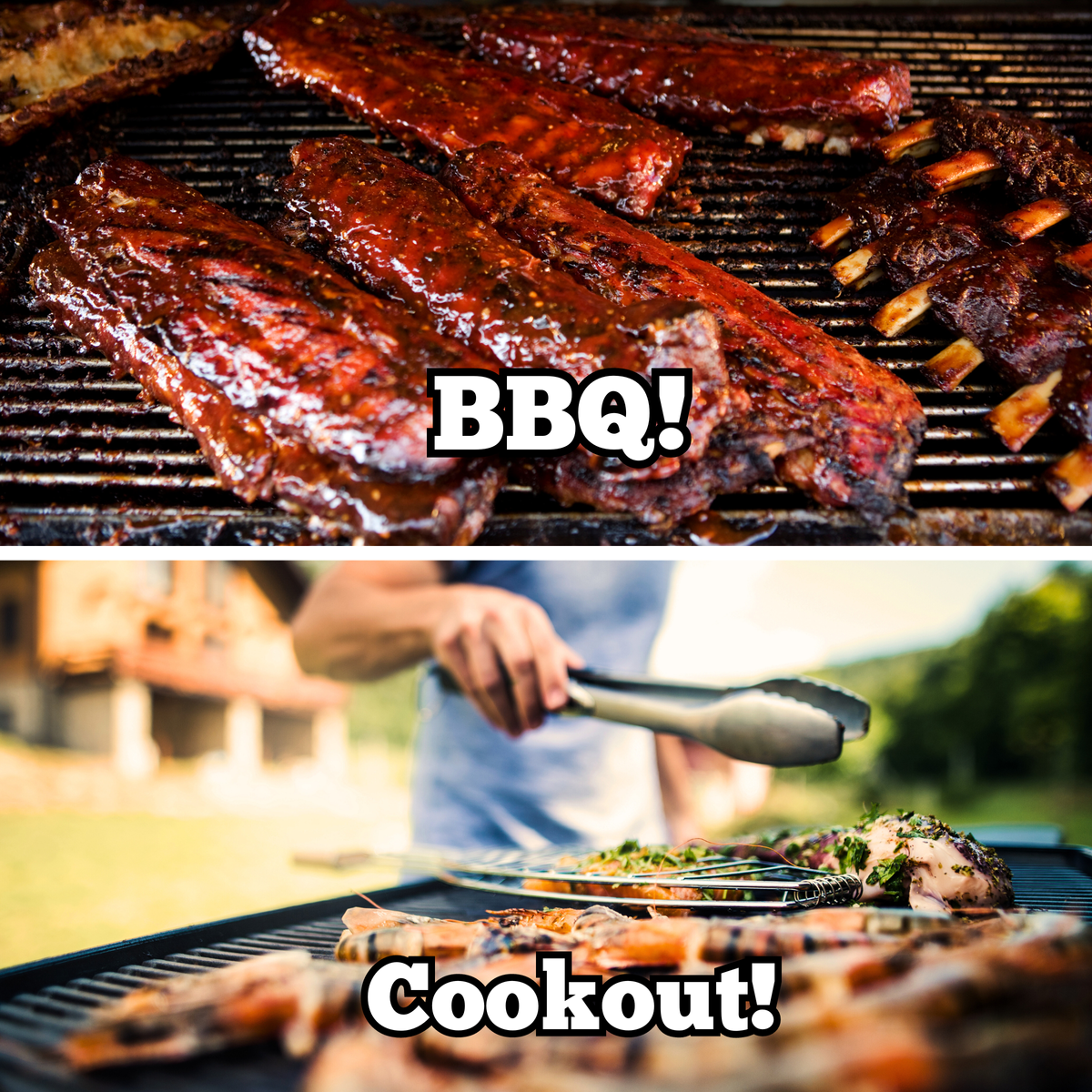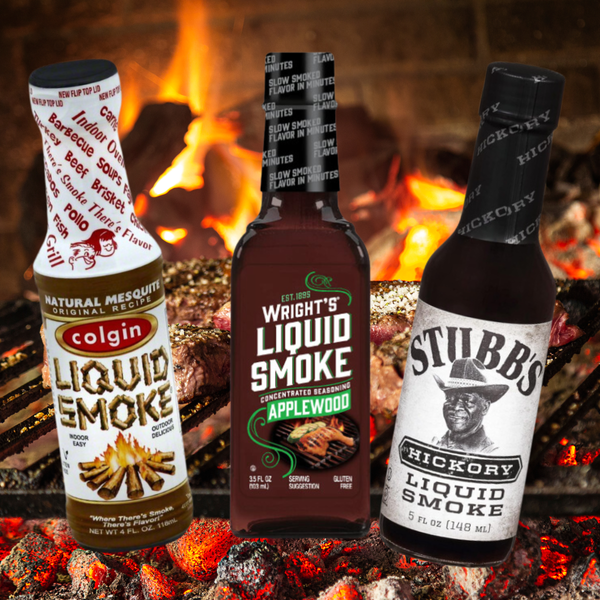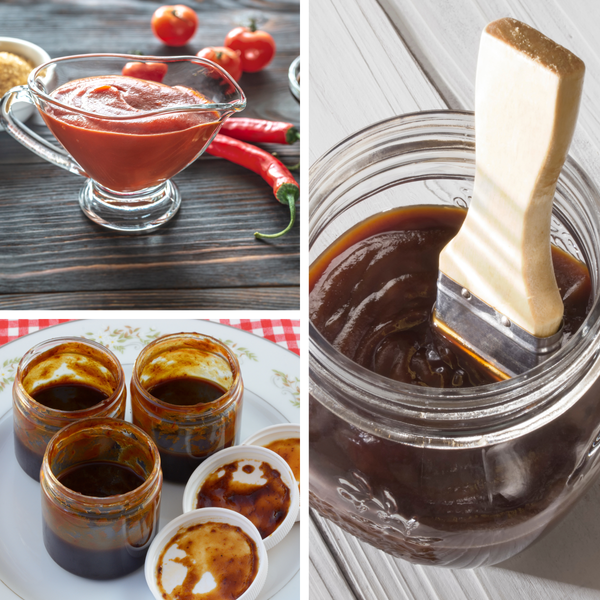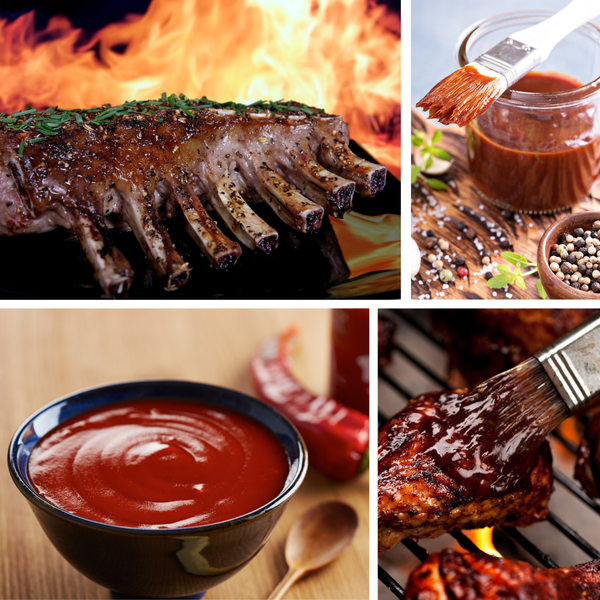Key Takeaways:
- Discover the unique terms Southerners use for their beloved barbecue traditions.
- Learn about the different styles and meats that define a Southern BBQ.
- Understand the cultural significance of barbecue in the Southern states.
Barbecue in the American South is not just a method of cooking; it's a cultural institution, a point of pride, and a topic that can spark more heated debates than politics at a family reunion. But what do southerners call a BBQ? Well, buckle up, buttercup, because we're about to take a saucy journey through the smoky lexicon of Southern BBQ.
The Great Southern BBQ Vocabulary Rodeo
When a Southerner says "barbecue," they're not talking about throwing a few hamburgers and hot dogs on a gas grill. Oh no, that's just a cookout, and confusing the two might earn you some serious side-eye. Barbecue in the South is a whole different ballgame, involving careful preparation, many hours of smoking meats over indirect heat, and a whole lot of love.
The Meat of the Matter
In the South, when you hear the term "barbecue," it's often followed by a specific type of meat. North Carolina pulled pork, Texas beef brisket, Memphis ribs, and whole hog are just a few of the mouth-watering specialties that might be on the menu. Each state, and sometimes each region within a state, has its own specialty and preferred cut of meat.
The Low and Slow Philosophy
The cooking process for a good barbecue is akin to a spiritual ritual. It involves smoking the meat over low heat for several hours, or even a whole day. This is not a task for the impatient. Southerners take their time, often starting in the wee hours of the morning to get those meats ready for dinner.
A Symphony of Sauces
Barbecue sauce in the South is a mixed bag of regional flavors. From the vinegar-based tang of NC barbecue to the sweet and spicy kick of hot sauce in Memphis, each sauce is a reflection of the local palate. And let's not forget the mustard-based concoction found in parts of South Carolina. It's a condiment cornucopia!
The Whole Hog Tradition
In some parts of the South, like Eastern North Carolina, "barbecue" means one thing and one thing only: whole hog. The entire pig is cooked and served, often at large gatherings that are whole day affairs. It's a time-honored tradition that's as much about community as it is about good food.
The Side Dish Soiree
What's a barbecue without the supporting cast of side dishes? Corn on the cob, baked beans, coleslaw, and potato salad are just a few of the staples. And let's not forget the bread – whether it's a slice of white bread or a fluffy biscuit, it's essential for sopping up all that delicious sauce.
The Art of the Pitmaster
Behind every great barbecue is a pitmaster who has mastered the art of fire and smoke. This person is part chef, part chemist, and part magician, transforming cuts of meat into tender, flavorful masterpieces. It's a title that's earned through years of experience and many hours tending the fire.
The Backyard Bonanza
For many Southerners, barbecue is synonymous with outdoor cooking in the company of friends and family. Lawn chairs, cold drinks, and the smell of meat slow cooking on the grill are the hallmarks of a Southern BBQ. It's simply inviting friends over for good times and good eats.
The BBQ Whisperer's Lexicon
Ever wondered what southerners call a BBQ when they're not busy smelling meat slow cooking to perfection? Well, strap in, because we're about to spill the beans—or should we say, the pork butt? In the land where barbecue chicken is a religion, these culinary linguists have a dialect that's as rich as their sauces. They don't just "grill hot dogs"; they orchestrate a symphony of sizzling that serenades the neighborhood. It's not uncommon to overhear phrases like "y'all come grab a plate" or "fixin' to smoke a whole pig," which, translated, means "prepare for a feast of epic proportions."
Now, if you find yourself in the company of NC folks, you'll notice they have a special twinkle in their eye when they talk about their 'cue. It's not just a barbecue; it's a "pig pickin'," and it's serious business. They'll debate the merits of vinegar-based over tomato-based sauces with the same fervor as a courtroom drama. And let's not forget the west coast, where they might throw in some "tri-tip" lingo to confuse the uninitiated. Meanwhile, in New England, they're serving hot dogs and other easy foods at their barbecues, but they'll still call it a "cookout" with a side of pride.
The BBQ Etiquette Enigma
In the smoky world of southern BBQ, there are unwritten rules that are as binding as the sticky glaze on beef ribs. For instance, if you're not standing around the grill discussing the finer points of charcoal versus wood, are you even at a BBQ? And let's talk about serving hot dogs—there's a right way and a wrong way. The right way involves a grill marked to perfection, nestled in a bun that's been toasted to just the right degree of golden brown. The wrong way? Well, let's just say if the hot dogs are boiled and the buns are soggy, you might as well be at a tailgate in another country.
But it's not just about the food; it's about the camaraderie. In America, particularly the South, barbecues are the social glue that holds communities together. You'll find folks gathered around the fire, swapping stories, and doling out generous helpings of everything from pork butt to life advice. And if you're lucky enough to be invited to one of these gatherings, remember: it's not just about eating; it's about being part of a tradition that's as old as the country itself. So, pull up a chair, grab a plate, and immerse yourself in the rich tapestry of southern BBQ culture.
The Cultural Tapestry
Barbecue in the South is more than just food; it's a part of the cultural fabric. It's a culinary expression of the American dream, rooted in history and seasoned with the diverse influences of the people who call the South home. From post-World War II gatherings to modern-day festivals, BBQ is a thread that weaves through Southern life.
The Grill vs. The Smoker
In the South, the difference between grilling and barbecue is clear as day. Grilling is for quick-cooking foods like hamburgers, hot dogs, and sausage – it's the sprint of the outdoor cooking world. Barbecue, on the other hand, is the marathon, requiring a smoker and several hours of cooking time.
The Unwritten Rules of Southern BBQ
There are certain unwritten rules that govern a Southern barbecue. For instance, never rush the pitmaster, always bring a side dish or a drink to share, and never, ever say no to seconds. It's about respect, hospitality, and an appreciation for the time and effort that goes into making a barbecue feast.
The Barbecue Pilgrimage
For BBQ enthusiasts, traveling through the Southern states is like a pilgrimage to the holy land of smoked meats. Each stop offers a new flavor, a new technique, and a new story. It's a journey through the heart and soul of the American South, one plate of barbecue at a time.
The Evolution of Southern BBQ
While tradition reigns supreme in Southern barbecue, there's also room for innovation. New pitmasters are putting their own spin on classic recipes, experimenting with different woods, spices, and cooking methods. It's an ever-evolving cuisine that pays homage to its roots while looking to the future.
The BBQ Debate: Charcoal or Wood?
Ask any Southerner, and they'll have an opinion on whether charcoal or wood is the superior fuel for barbecue. It's a debate that can spark more controversy than discussing politics or religion. But whether you're a charcoal champion or a wood worshipper, the goal is the same: to create that perfect smoky flavor.
The Social Glue of the South
Barbecue in the South is more than a meal; it's a social event. It's a reason to gather, to celebrate, and to connect with one another. It's the glue that holds communities together, a tradition that's passed down from generation to generation.
The Final Verdict
So, what do Southerners call a barbecue? It's a term that encompasses a rich tapestry of traditions, techniques, and tastes. It's a word that conjures up images of smoky meats, tangy sauces, and gatherings that last well into the night. In the South, barbecue is not just a way to cook food; it's a way of life.
Summary
In the grand culinary theater of the American South, barbecue stands out as a star performer, with a lexicon as rich and varied as the flavors it celebrates. It's a term that means different things in different places, but always represents a commitment to the craft of slow-cooked, smoked meats and the community that gathers around them. Whether it's a whole hog in North Carolina, beef brisket in Texas, or pork ribs in Memphis, barbecue in the South is a serious business that's taken with a side of good humor and a generous helping of hospitality.
FAQ Section
Q: Is there a difference between a Southern BBQ and a cookout?
A: Absolutely! In the South, a cookout typically refers to a casual outdoor gathering where foods like hamburgers and hot dogs are grilled. A BBQ, on the other hand, is a more involved affair, focusing on slow-cooked meats like pulled pork, ribs, and brisket, often smoked over wood or charcoal for several hours.
Q: What are some traditional side dishes served at a Southern BBQ?
A: Traditional sides include corn on the cob, baked beans, coleslaw, potato salad, and some form of bread for sopping up the sauce. These dishes complement the rich, smoky flavors of the barbecue and are an essential part of the meal.
Q: Can you explain the regional differences in Southern BBQ styles?
A: Certainly! Southern BBQ varies greatly by region. For example, Eastern North Carolina is known for its vinegar-based sauces and whole hog barbecue, while Texas is famous for its beef brisket. Memphis is celebrated for its pork ribs, often served with a sweet and spicy sauce, and South Carolina has a unique mustard-based sauce. Each region has its own distinct style and preferred meats.










